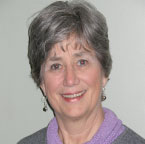Authored by Sydney K. Reed, L.C.S.W.
On February 22, 2019, I presented some early family of origin work in my keynote address on Death and Chronic Illness at the Clinical Application of Bowen Family System Theory Conference. This blog post addresses a key question raised during the discussion that followed my presentation.
In 1972, after a consultation with Dr. Bowen regarding my efforts to define a self in my family of origin, I returned to Montana for my first solo trip back as a married adult. Dr. Bowen had advised me that the most productive effort I could make would be to develop a relationship with my mother’s brothers’ wives. Several people asked me to explain the theory behind how that would have been useful. I have no idea what was in Dr. Bowen’s mind when he gave me that suggestion. However, I can make some guesses that I have developed in my study of Bowen theory. He had written about the importance of open relationships in the family. I had little to no relationships with these family members since I left Montana at 18 in 1960 for college, Peace Crops, and marriage.
I told him that I usually experienced much anxiety talking to my mother on the phone, but I had no real factual information to understand what I now see as “unresolved attachment” and how it was playing out.
My mother was the only daughter of her mother living in Montana, and thus the only sister of the 7 brothers in the area. Given how interlocking triangles work, my making a connection with my mother’s sisters-in-law would influence the relationship she had with them. It would also loosen the connection I had with my mother by activating that triangle in which I would have my own one on one relationship with other adult women in my family. All of these women were also connected to my grandmother, and a relationship with them would provide more information about her and how the family process operated in that generation.
Because of some of my high school achievements, I was somewhat over valued by this side of the family. A real relationship would normalize their view of me and make for a more realistic connection. This would help me respond to the projection process of my mother’s need to have an “accomplished daughter”. This meant I could define myself by myself and for myself, and not for my mother and her expectations. All this doesn’t happen in one visit but over time, and would help me achieve a more solid sense of self, i.e. differentiation.
Dr. Bowen once said that getting a real relationship with your family could help you “grow up” more than anything he knew. Bridging the distances created by education, values, experiences and projections means one has to manage oneself and one’s reactivity in a very honest, respectful and thoughtful way. Knowing the stories of how women in my family with very different skills and challenges had survived, married, raised children and created lives for themselves was a bonus for me, reinforcing the notion that variability in a family can be one of its greatest strengths. It helped me in the process of accepting and respecting differences in my clinical families and even in my husband’s family.
As it turned out, that visit was the beginning of several lifelong friendships.
Did Bowen, knowing my grandmother had died, suspect a hidden “shock wave” that I wasn’t aware of? Maybe. Of course, by spending time with my mother’s family, this shock wave soon became known to me. My connection with my extended family provided useful information about the context in which my parents had grown up. This information helped me understand them better and appreciate the multigenerational patterns that I could see in my family of origin and that I was reproducing in my nuclear family, giving me a bit more choice of how I managed myself.




Leave a Reply